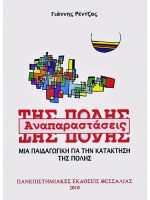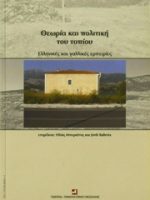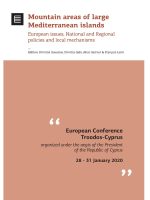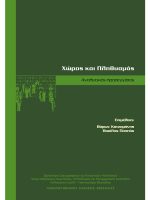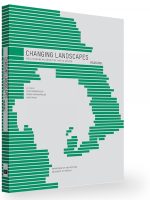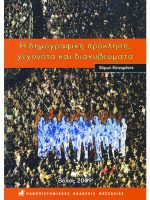This publication comprises the Proceedings of the International Symposium “The heritage commitment – Modeling the communitisation process” which was successfully organised in Kalamata (Greece) between 28-31 May 2022. This Symposium was an integral part of the project “OLIVE4ALL – Olive Heritage for Sustainable Development: Raising Community Awareness of Living Heritage” (2021-2024), which is funded by the European Joint Programming Initiative Cultural
Heritage (JPICH), within the framework of the call “Cultural Heritage, Identities & Perspectives: Responding to Changing Societies” (CHIP). OLIVE4ALL is implemented by the University of Avignon (France — project leader), the IPL – Polytechnic Institute of Leiria, School of Tourism and Maritime Technology (Portugal) and the University of Thessaly (Greece).
OLIVE4ALL aims to promote appreciation of the olive heritage, which is a significant, shared element of the Mediterranean identity and a bearer of strong values and symbols; nonetheless, it is still often neglected and insufficiently valued. OLIVE4ALL aims to highlight this heritage as well as the stakeholders and communities -visible and invisible- that are linked to it, documenting the processes of patrimonialisation. To this end, the project develops various forms of mediation based on narration, sensoriality and digital technology, with the objectives to raise awareness of stakeholders and audiences, to enable inclusive access to the olive heritage and to instigate dialogue, exchange of good practices, networking and integration of the olive heritage into territorial development. Subsequently, OLIVE4ALL aspires to foster sustainable development in its human, social, economic and environmental dimensions, based on the diachronic and shared olive heritage, and to help build the resilient communities of tomorrow.
The Kalamata Symposium was attended, among others, by the Hellenic Ministry of Culture and Sports through the Directorate of Contemporary Cultural Resources and Intangible Cultural Heritage, and by more than 20 distinguished speakers, academics, practitioners, and stakeholders of the local olive heritage communities, specializing in cultural management and sustainable development, cultural tourism, olive/olive oil/olive derivatives production and digital media. The presentations focused on documenting the importance of the olive cultural heritage as a driver of sustainable development in today’s changing societies.

